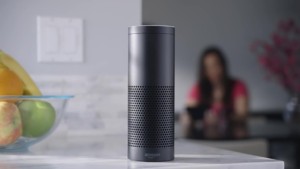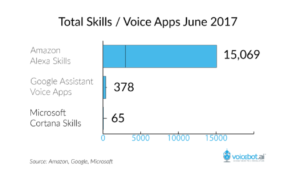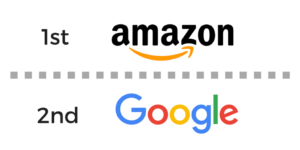The beauty industry can benefit from smart and connected technology. To understand how businesses...
Is Voice The New Touch?
 Gone are the days when your home’s IoT devices are controlled through your smartphone or web browser. With smart speakers entering more and more consumer residences, smart home product interactions have shifted to include non-tactile interfaces which foster unique experiences. Consumers have shown that they are behind the shift, as the number one selling product during Amazon’s Prime Day on July 12 was their Echo Dot. The ability to execute commands and receive information passively without directly changing your task at hand seems to be highly valued by users. Another important feature about these products is that they can be easily integrated to work with other devices as control hubs.
Gone are the days when your home’s IoT devices are controlled through your smartphone or web browser. With smart speakers entering more and more consumer residences, smart home product interactions have shifted to include non-tactile interfaces which foster unique experiences. Consumers have shown that they are behind the shift, as the number one selling product during Amazon’s Prime Day on July 12 was their Echo Dot. The ability to execute commands and receive information passively without directly changing your task at hand seems to be highly valued by users. Another important feature about these products is that they can be easily integrated to work with other devices as control hubs.
With the release of Google Home last November, and the arrival of a second giant to the playing field, the smart speaker/virtual assistant market entered the growth stage of its product life cycle. Prior to this, Amazon’s Echo series had controlled the market with other products launching, but either not creating traction, or having a large enough ecosystem to give them a retainable foothold. While both the Echo and the Google Home have similar functionality, the way in which they interact with other products along with the ecosystem architecture lends for different experiences depending on what product you use. Both products allow users to integrate other devices and services into their voice controlled environments, but use different methods to achieve the same purpose.
the release of Google Home last November, and the arrival of a second giant to the playing field, the smart speaker/virtual assistant market entered the growth stage of its product life cycle. Prior to this, Amazon’s Echo series had controlled the market with other products launching, but either not creating traction, or having a large enough ecosystem to give them a retainable foothold. While both the Echo and the Google Home have similar functionality, the way in which they interact with other products along with the ecosystem architecture lends for different experiences depending on what product you use. Both products allow users to integrate other devices and services into their voice controlled environments, but use different methods to achieve the same purpose.
Being the first major smart speaker in the market, the Amazon Echo has had a massive lead over Google Home. This is represented in the number of Echo Skills, what amazon calls its voice apps, that have been developed since they released their device. A staggering 15,000 skills have been developed as of June 2017, but it is important to note that a large number of these have only been installed under 100 times. Skills are either integrations or dedicated apps for the device.  Skills have been available for the Echo since launch with developer support from the beginning. Skills are handled through an app store experience where you to install individual skills onto the Echo based on users interests. Google takes a different approach with their Google Actions, their version of the same kind of app. Actions are not separate apps that need to be installed on the Google Home, rather Actions get directly integrated into the Google Assistant and can be used immediately by users. Users can still browse available Actions through a directory. This has the benefit of not requiring users to choose apps they need ahead of time. Conversely with Actions, users may find that there are more features than they actually use build into the system.
Skills have been available for the Echo since launch with developer support from the beginning. Skills are handled through an app store experience where you to install individual skills onto the Echo based on users interests. Google takes a different approach with their Google Actions, their version of the same kind of app. Actions are not separate apps that need to be installed on the Google Home, rather Actions get directly integrated into the Google Assistant and can be used immediately by users. Users can still browse available Actions through a directory. This has the benefit of not requiring users to choose apps they need ahead of time. Conversely with Actions, users may find that there are more features than they actually use build into the system.
Neither Amazon or Google’s ecosystem is very challenging to integrate into current systems with straightforward processes for implementation. Both platforms have similar introductory courses on building a simple fact based app for either Alexa or Google Home. Both programs have incentives for developers to build on their platform. Google is currently trying to increase their total number of Actions through cash prizes, while Amazon has a longstanding rewards programs including Echo dot and other perks.
We suggest that the first voice based platform you introduce your product on be Amazon’s Echo through their Skills. There are currently many more users, the build time for the integration is similar to Google’s and if you are in individual developer you are more likely to get some Echo merchandise by releasing a Skill. The caveat that is the Amazon will require you to produce documentation to inform users to install your Skill. But in the short term, it is more likely that your user will actually own Amazon’s product over Google’s. Long term, Google will be a better system, because they have a much more established and wide reaching ecosystem, along with stronger computing potential. Currently their market share is much smaller than Amazon making them a less beneficial first development choice.'
developer you are more likely to get some Echo merchandise by releasing a Skill. The caveat that is the Amazon will require you to produce documentation to inform users to install your Skill. But in the short term, it is more likely that your user will actually own Amazon’s product over Google’s. Long term, Google will be a better system, because they have a much more established and wide reaching ecosystem, along with stronger computing potential. Currently their market share is much smaller than Amazon making them a less beneficial first development choice.'
Need assistance building your first Alexa skill? Click through to let Bluefin help you!
Do you have an IoT project you need help with? Bluefin Technology Partners helps companies build amazing connected solutions. We understand the complexity and collaboration required between organizational disciplines in order to deliver an IoT product to market on time and on budget. We provide the services needed to assess your market, manage your partners, and shepherd your project through successful launch.